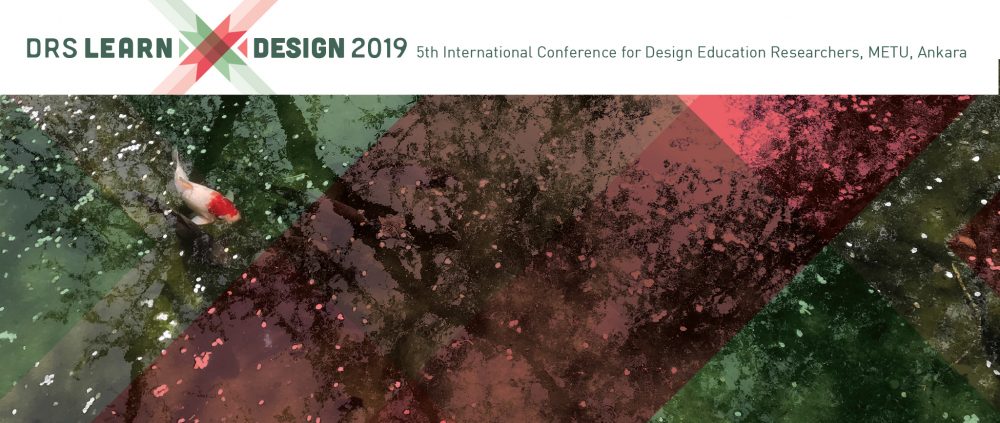*** Please check our new workshops!***

DRS Learn X Design 2019 invited design educators, researchers and practitioners to explore, advance, re-discover or challenge the theme of the conference. The accepted Workshops question “insider knowledge” from different perspective, through experimentation, collaboration and interaction.
Below are the details of each Workshop, together with a download of the full workshop description and chair information should you need further details.
All Workshops will take place at the METU Campus, from the 9th until the 11th of July, 2019. Registration for all workshops is free, but places are limited, and you will need to be a registered DRS LXD2019 delegate to be eligible as a workshop participant.
The Workshop programme and registration details will be announced later, along with the full conference programme.
Workshop 1 THINKING INSIDE THE BOX
9 July 2019 Tuesday, 09:30-16:30
METU CCC Hall H
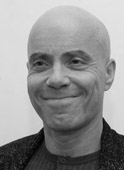
Alon RAZGOUR (The NB Haifa Academy of Design/ Alon Razgour Studio) e-mail: alon@razgour.com
The workshop will be based on teamwork. The aim in this workshop is to create productive thinking and a dynamic of innovation in the group. The workshop is aimed to create an experience of how “thinking in the box”, within a groups dialogue can create unique and new ideas. In the workshop the participants will experience how thinking inside a box can develop creativity. We will take products, such as a toothbrush or a children’s educational game, and learn how to develop and create innovation in those simple objects.
→ Download the full Workshop description (PDF)
Workshop 2 WHAT I WATCH, WHAT I SEE
9 July 2019 Tuesday, 09:30-12:30
METU CCC Hall E
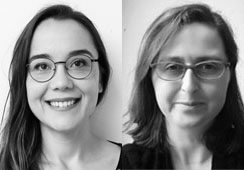
Senem TURHAN (Middle East Technical University) e-mail: turhans@metu.edu.tr
Çağla DOĞAN (Middle East Technical University)
“What I watch, what I see” workshop will focus on video analysis techniques through the exemplary videos of aparticular experience. This workshop aims to enable design researchers to understand and interpret participants’behaviours, needs, preferences on a specific practice and gain insights into that user experience via video analysis. The workshop participants will reflect on what they see and observe through making interpretations to develop themes and potential design solution areas. Design researchers can make use of the techniques incorporated into the workshop for their further design research processes, especially for the video analysis phases.
→ Download the full Workshop description (PDF)
Workshop 3 “ENCOUNTERS OF A NARRATIVE KIND”: MULTI-LINEAR STORYTELLING IN DESIGN SCENARIOS
9 July 2019 Tuesday, 13:30-16:30
METU CCC Hall E
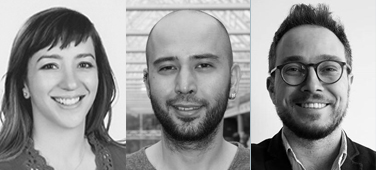
Dalsu ÖZGEN KOÇYILDIRIM (Middle East Technical University) e-mail: dozgen@metu.edu.tr
Yekta BAKIRLIOĞLU (University of Limerick)
Aykut COŞKUN (Koç University)
Storytelling is a prominent topic in design, as design researchers and practitioners discover its effectiveness in not only communicating ideas but understanding human behaviour, motivation and interactions. An important challenge of developing an effective and valuable design scenario is to reflect the perspective of all the involved stakeholders, from the user, the producer to the bystander who may be somehow affected. With every character that is included in the narrative, the designer needs to consider their various goals which might be diverging or even conflicting with each other as their individual narratives converge. This workshop builds upon organizers’ previous research on Story Intervention Method (SIM) by exploring this issue of multiple narratives, which is especially relevant to service design or any design problem where the encounter of multiple users is in question. The workshop will focus on an experience most people are familiar with, and look at the various narratives that enfold as different users and stakeholders cross paths. The participants will be asked to create narratives for different characters, envision their encounters and design interventions that lead to alternative narratives.
→ Download the full Workshop description (PDF)
Workshop 4 COLOR RESEARCH AND DESIGNING WITH COLOR
10 July 2019 Wednesday, 09:30-12:30
METU Faculty of Architecture, Studio 27
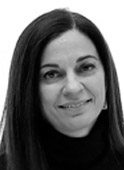
Ece YALIM (Artful, Ece Yalım Design) e-mail: ece@artful.com.tr
The aim of this workshop is to shift the general tendency of designers’ approach of color decision from subjective to objective. Unlike the general tendencies of seeing color application as the last touch up, designers should be encouraged to carry out color search and color application in different phases of their design process, particularly focusing on the early stages of design where the form and function of products are still in progress. This workshop is constructed in a way to make the participants experience color application in design, on a conscious level with a purpose to reach a meaningful use of color, after they are given task-related color theory information with a short lecture.
→ Download the full Workshop description (PDF)
*NEW*
Workshop 5 BLATANT FABRICATIONS: QUICK, AI POWERED DESIGN FICTION
10 July 2019 Wednesday, 14:45-16:15
METU CCC Hall C
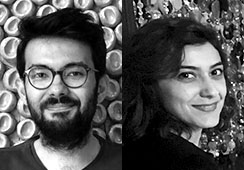
Emre ÇAĞLAR (lead and contact) (METU Department of Industrial Design) e-mail: caglaremre@gmail.com
Nagihan TUNA (METU Department of Industrial Design) e-mail: nagihantuna@gmail.com
Design scenarios are important building blocks in the ideation process. While they concretize abstract ideas into usable narratives, more immersive ones help vitalize the problem context. As the scope of design education expands through more technologies, people and cultures, it is becoming increasingly complex for design students to imagine and articulate such immersive design scenarios, as they require details of a world students have yet to envision. Different domains tackle the issue from different angles: future studies employ methods from science-fiction writing to inspire the wit, while design fiction asks designers to temporarily break from reality as they generate insights from diegetic prototypes. Methods from both domains rely on either the designer’s or the educator’s talent of fiction writing.
At this point, we are asking: **”can an artificial intelligence create a world for your design problem?”**
In this condensed workshop, we will be letting a state-of-the-art AI [^OpenAI’s GPT-2 Algorithm], unleash what it learned from the world, towards the design problems of the participants. From its diegetic creations, participants will be generating quick design scenarios to vitalize worlds, based on their design problems.
*NEW*
Workshop 6 FORM GENERATION THROUGH 3D PAPER FOLDING
11 July 2019 Thursday, 14:45-16:45
METU CCC Hall C
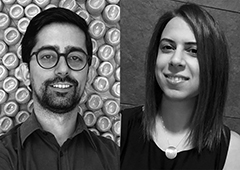
Alper KARADOĞANER (lead and contact) (METU Department of Industrial Design) e-mail: akaradog@metu.edu.tr
Dilruba OĞUR (METU Department of Industrial Design) e-mail: dilrubaogur@gmail.com
Physical modelling is an important phase of a concept/product development process to contribute positively to the form development for both design professionals and students. During form development process, the use of different design representation tools, such as physical and pictorial tools, by making transitions between them to support each other makes the form development process more effective. For instance, a quick mock-up as a physical tool could help designers to generate and improve forms throughout the different phases of their design process. Transferring these ideas generated with physical tools to the pictorial tools, such as sketching, is an effective way for form generation and development process. In this workshop, paper forming as a physical tool and sketching as a pictorial tool will be complementarily used for quick form generation. The workshop participants will experience how 3D paper folding could help form generation process of a concept product that will be introduced to them during the workshop. Participants will be working individually to generate 3D abstract forms from paper and then they are expected to transfer these explorations to a concept product through sketching. Participants will make evaluations on paper mock-ups and continue to develop on these physical models, which will improve the form development process and make a positive contribution.
